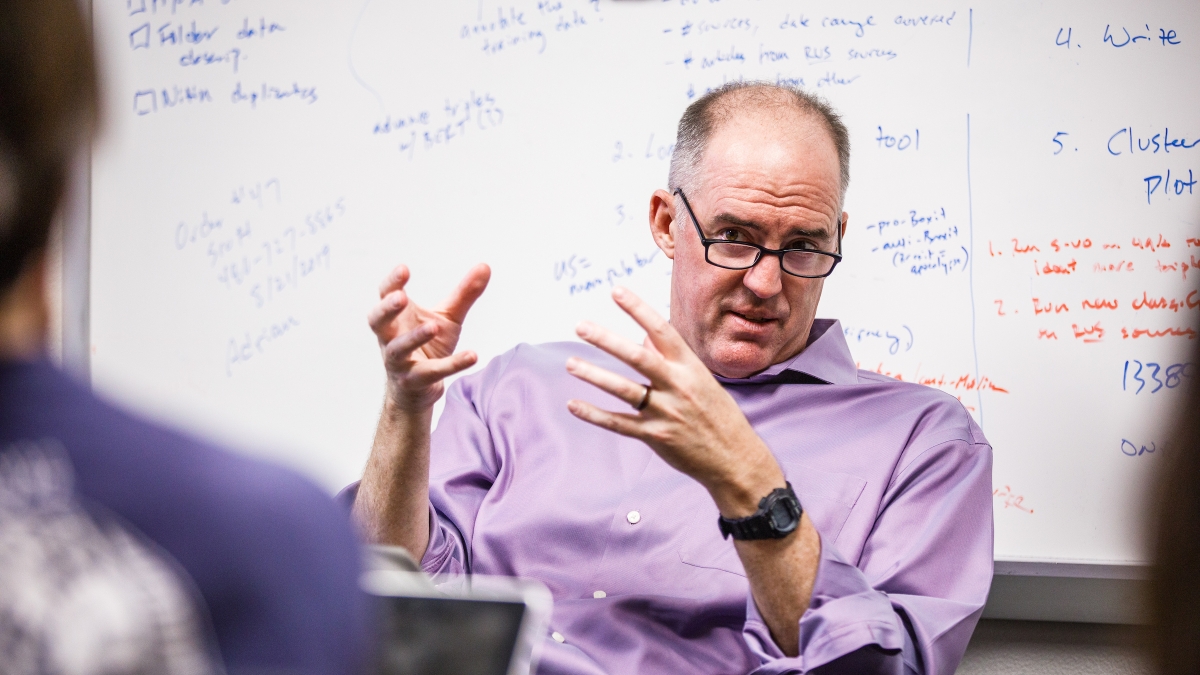There's an insidious threat that seeks to divide the nation and undermine our faith in democracy — disinformation. Often called fake news today, disinformation is the spread of false information with the willful intent to deceive.
Scott Ruston, a research scientist with the Global Security Initiative at Arizona State University, studies why disinformation is believable and how it spreads. In the latest ASU KEDtalk here, he offers tips on how to identify and defend yourself against fake news.
Video by Knowledge Enterprise
Ruston's talk is part of the ASU KEDtalks series. Short for Knowledge Enterprise Development talks, KEDtalks aim to spark ideas, indulge curiosity and inspire action by highlighting ASU scientists, humanists, social scientists and artists who are driven to find solutions to the universe’s grandest challenges.
Tune in to research.asu.edu/kedtalks to discover how researchers are attacking locust plagues, why baby steps are not the best way to achieve change and more.
Top photo by Andy DeLisle/ASU
More Law, journalism and politics

Native Vote works to ensure the right to vote for Arizona's Native Americans
The Navajo Nation is in a remote area of northeastern Arizona, far away from the hustle of urban life. The 27,400-acre reservation is home to the Canyon de Chelly National Monument and…

New report documents Latinos’ critical roles in AI
According to a new report that traces the important role Latinos are playing in the growth of artificial intelligence technology across the country, Latinos are early adopters of AI.The 2024 Latino…

ASU's Carnegie-Knight News21 project examines the state of American democracy
In the latest project of Carnegie-Knight News21, a national reporting initiative and fellowship headquartered at Arizona State University’s Walter Cronkite School of Journalism and Mass Communication…
